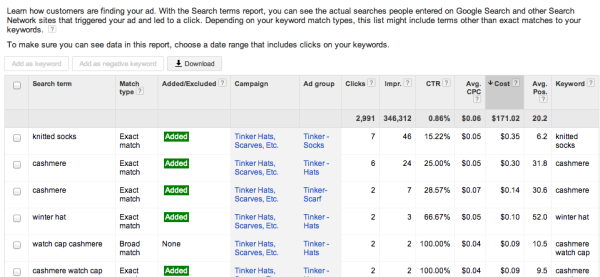AdWords data to be shown as “Not Provided” in Google Analytics and other analytics systems from 9th April 2014 - 5 things you need to know
Importance (to search marketers): [rating=5]
Recommended link: Google AdWords advisory
This is big news for companies that invest Google AdWords, particularly if it's a big contributor to their business and they mainly use their analytics system for reviewing effectiveness and ROI. It has less impact if you rely on Google AdWords own reports or a third-party system using their API.
1. It brings paid search data in line with natural search data. Google has been removing SEO keyword data for over 2 years. As we show in this post on not provided for SEO. The proportion of keywords marked “not provided” has risen over the past two years, so it’s now typically over 80% of searches.
2. It’s not unexpected - Google needed to make the privacy of search terms consistent. Search marketers have been suggesting since this time that AdWords should be treated similarly for parity and within the last month it’s been widely rumoured that this change would be made.
3. You can still get information on keywords searchers use within AdWords. Advertisers can still use the search term reports within their AdWords accounts to see the results of campaigns. As this post from Larry Kim of Wordstream shows, you can use existing search query reports. However, the advanced analysis features of Google Analytics using advanced segments and cohort analysis won't be available.

4. Third-party SEM management platforms will still work. Tools such as Kenshoo and Marin will still work since they use the AdWords API to access this data.
5. Additional guidance on automatic customisation of landing pages given. The Google guidance explains how companies using the API can customise not using the search term, but keyword that triggered the ad click.
“For customizing landing pages, we suggest using the keyword that generated the ad click, rather than the query. The keyword and match type can be passed to your web server by using a ValueTrack parameter in your destination URLs”.
We hope you find our alert useful. We only cover the major developments on digital platforms that marketers need to discuss with specialists managing their digital marketing activities in-house or with agencies.





